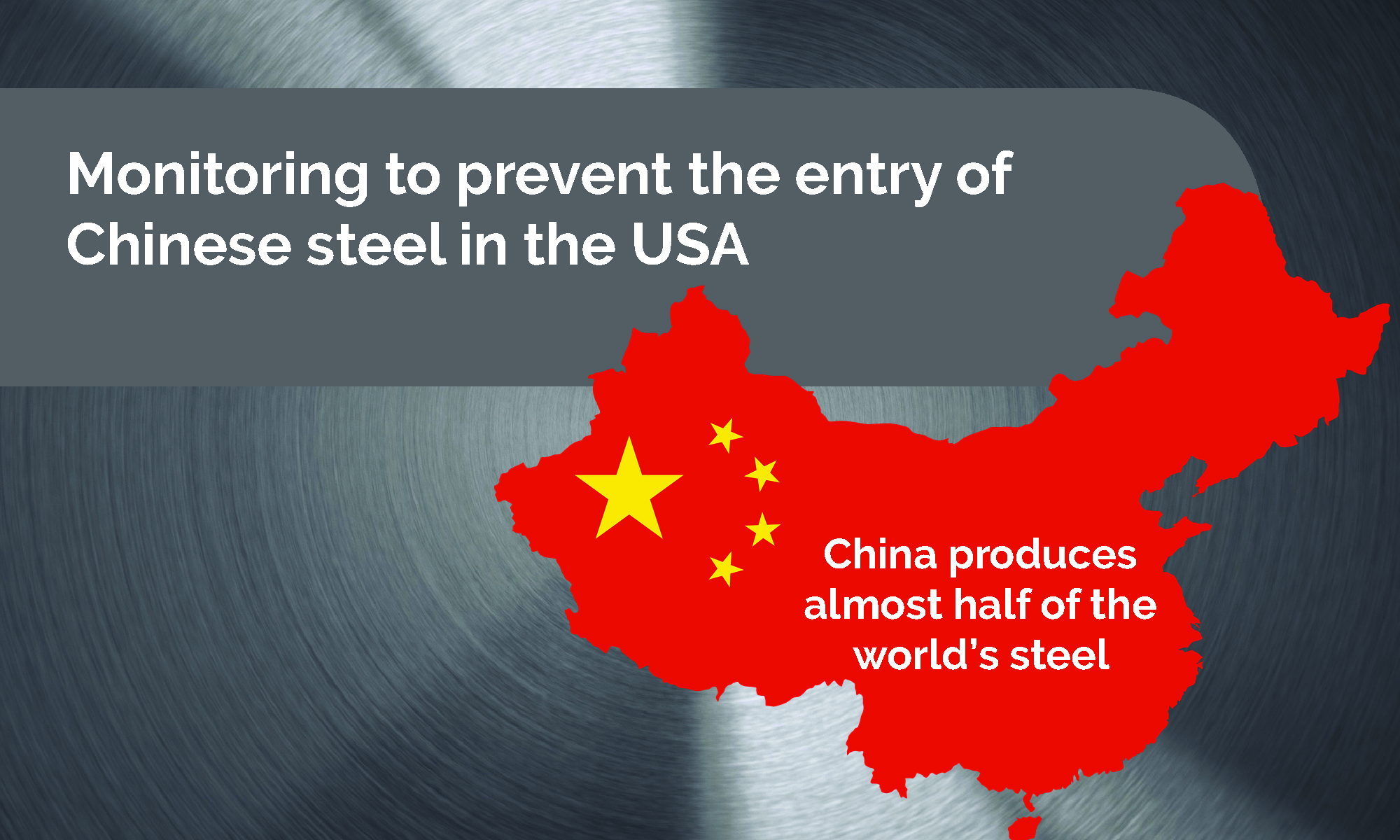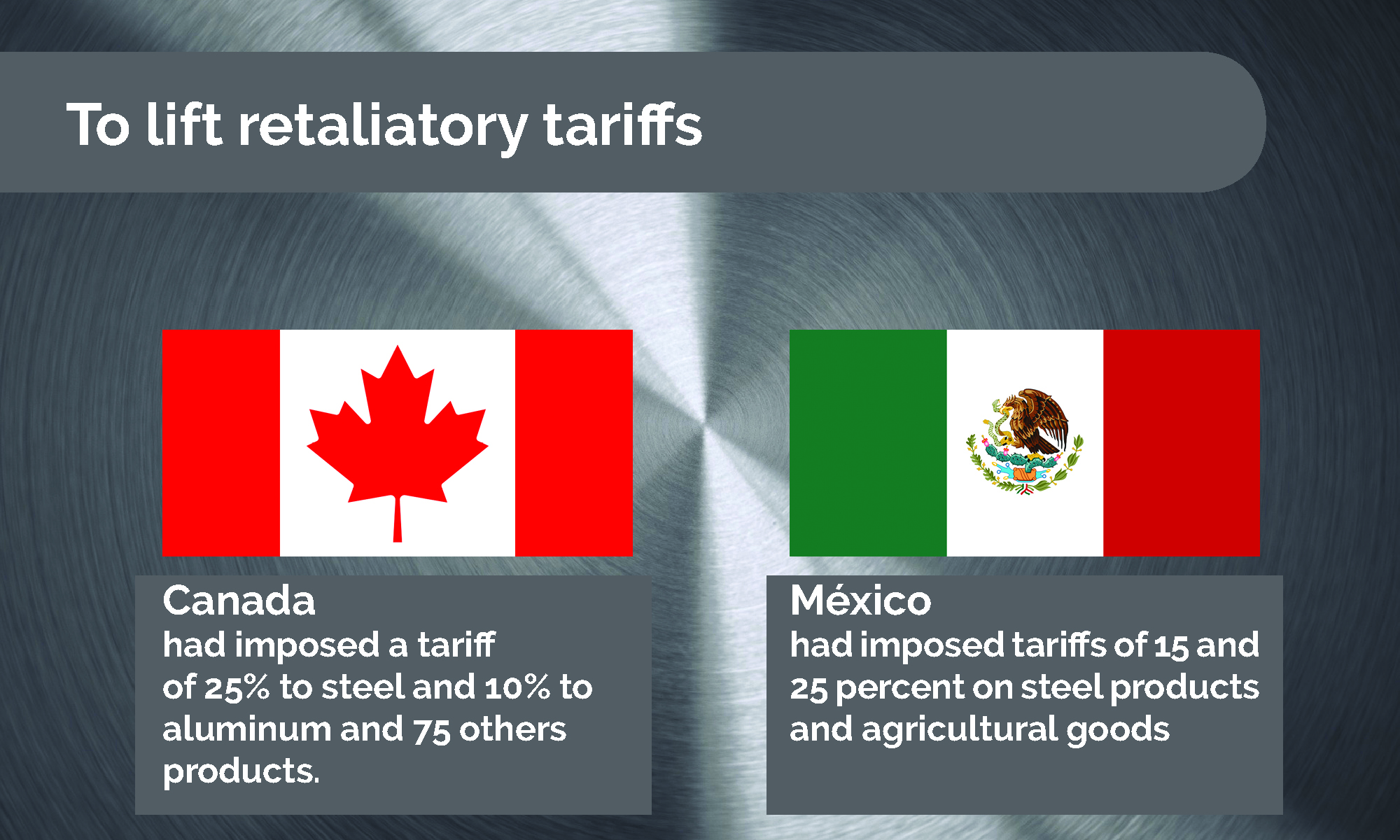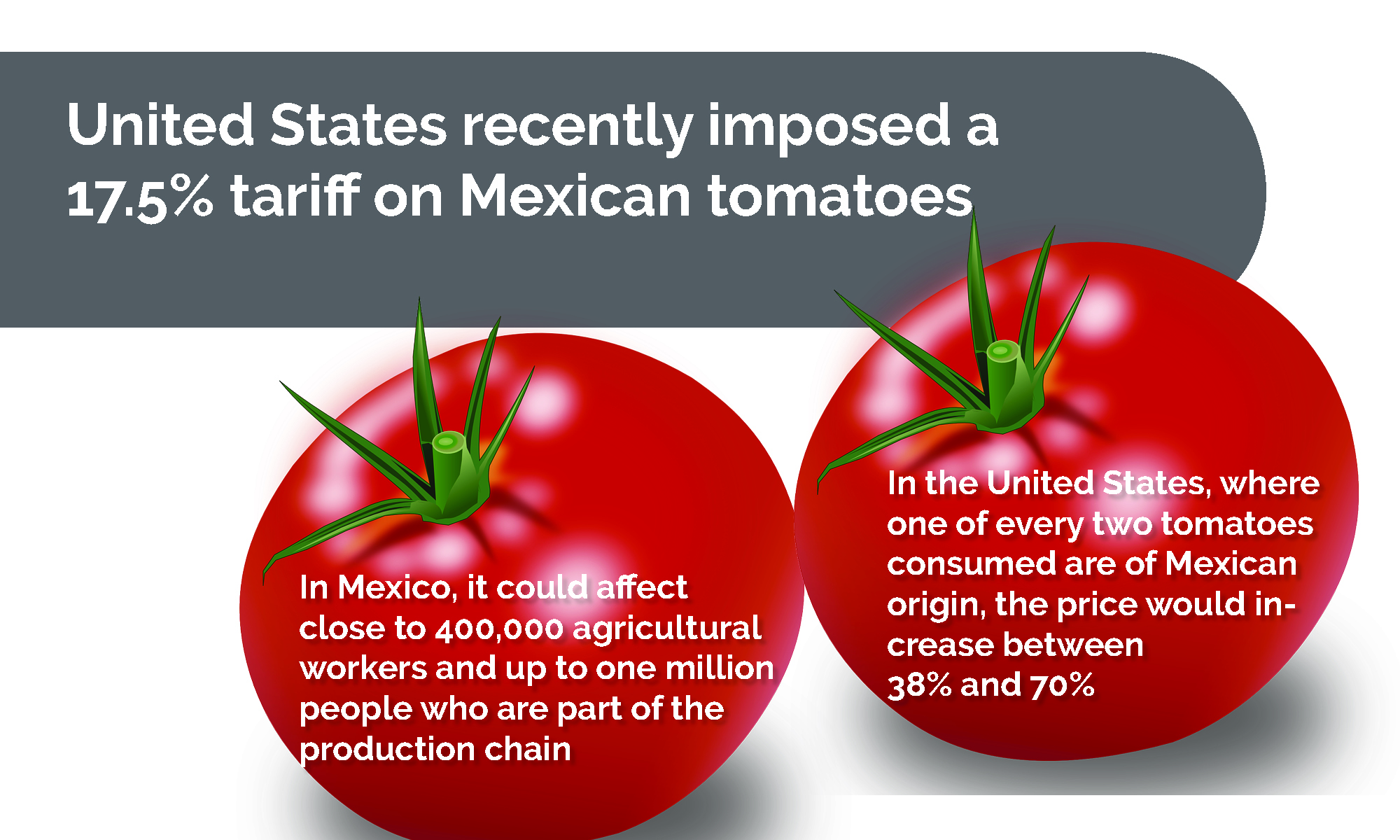An update in the commercial agreement between Mexico, the US and Canada
The United States agreed to eliminate the tariffs imposed last year on aluminum and steel from Mexico and Canada, a move that could lead to approval for the USMCA. The new commercial agreement is in the process of ratification in the Congresses of the three countries. During the negotiation in 2018 on the new trade agreement, President Trump imposed a tariff of 25% on steel and 10% on aluminum, with the argument that imports threatened the national security of his country. However, recently the US president agreed to eliminate tariffs, under the conditions presented below:
Monitoring to prevent the entry of Chinese steel in The United States
Canada and Mexico agreed to implement new monitoring measures to prevent Chinese steel from reaching the United States through Canadian or Mexican territories. China produces almost half of the world’s steel. The country has been accused of dumping, a practice that consists of keeping costs artificially low so that other producers cannot compete.. Note that, in 2018, imports of Chinese steel to Mexico registered a growth of 4%.

To lift retaliatory tariffs
Canada and Mexico pledged to lift the retaliatory tariffs that they had established in response to the tariff on aluminum and steel imposed by the US in 2018.
Mexico had imposed tariffs of 15 and 25 percent on steel products and agricultural goods such as pork legs, apples, blueberries, cheeses. , potatoes and whiskey from the United States. For its part, Canada imposed an additional tariff of 25 percent on imports of steel from the United States, as well as 10 percent on aluminum and other 75 products, including yogurt, chocolate, whiskey, and toilet paper.

End pending litigation at the World Trade Organization
After the United States imposed the tariffs on Mexican and Canadian steel and aluminum, the aggravated countries filed a lawsuit with the World Trade Organization. In turn, the government of the United States also filed a complaint against the retaliatory measures taken by the governments of Mexico and Canada.
Now, with the elimination of the tariff on aluminum and steel by the United States, both Mexico and Canada agreed to reverse these disputes with the WTO.

There are still pending commercial issues … what about the tomatoes?
The United States recently imposed a 17.5% tariff on Mexican tomatoes, after the expiration of the deadline to eliminate the application of the Suspension Agreement to the Antidumping Investigation to the Mexican Exports of Tomato, in force since 1996. After beer and avocado, the tomato is the most exported product from Mexico to the United States.
The tomato tariff would affect both Americans and Mexicans. In Mexico, it could affect close to 400,000 agricultural workers and up to one million people who are part of the production chain. In the United States, where one of every two tomatoes consumed are of Mexican origin, the consumer would be the most affected since the price would increase between 38% and 70%, according to the Ministry of Economy of Mexico.

Sources
El Universal: México aumenta importaciones de acero chino
CTV News: Fight over metals tarriffs focused CDn industries in China:aluminium CEO
El financiero: Gobierno de Trump elimina aranceles y aluminio de México y Canadá
El Pais: Estados Unidos Impone un arancel del 17.5% a los tomates mexicanos.









